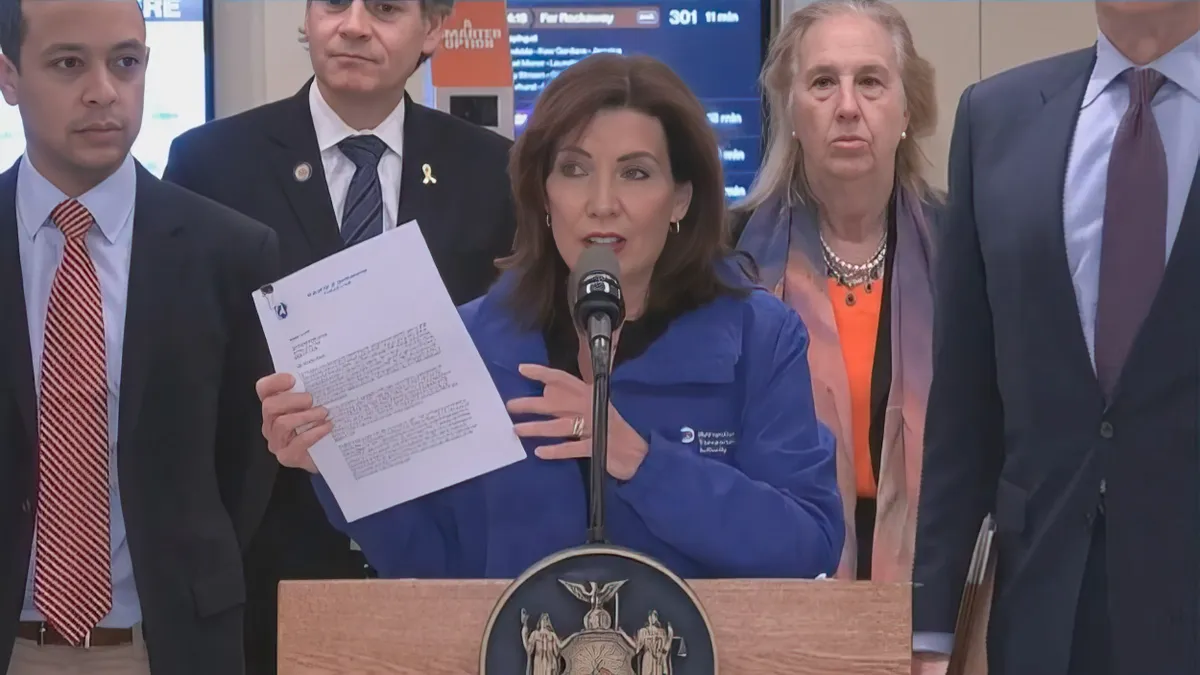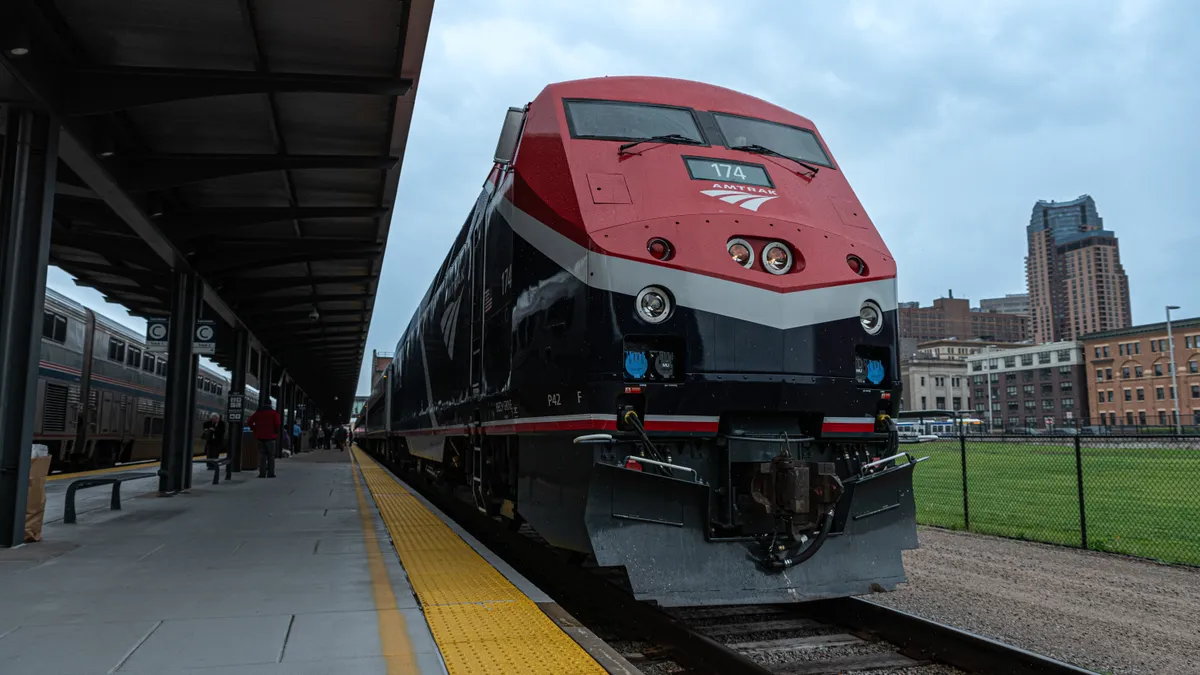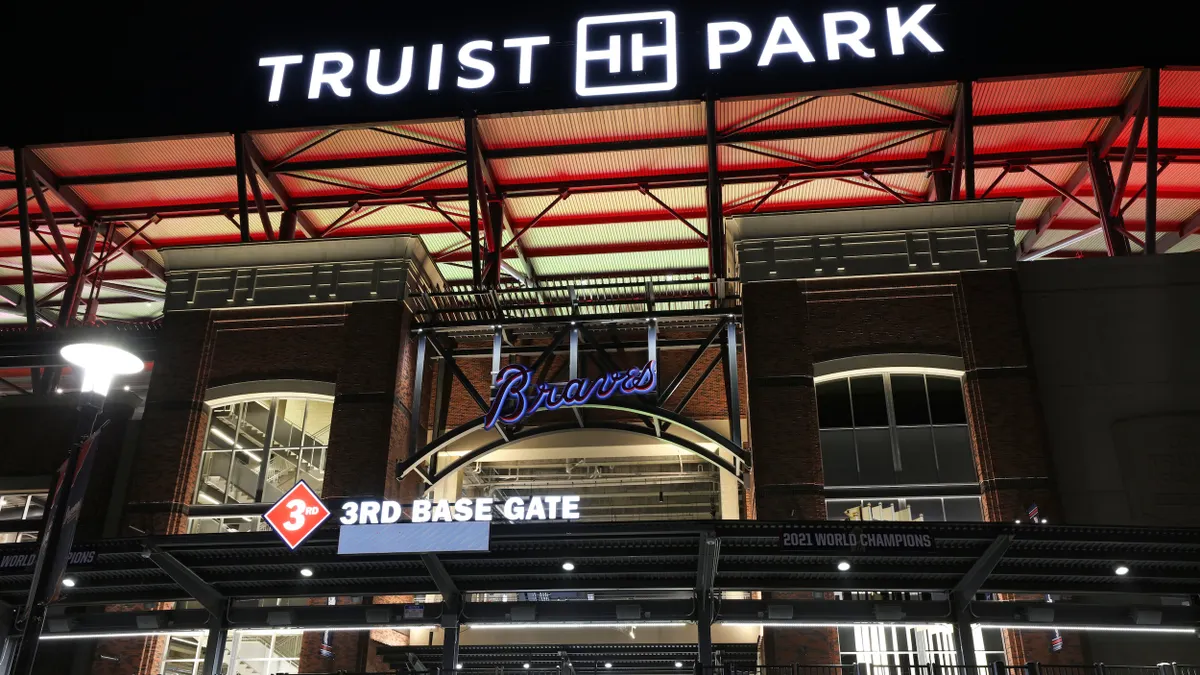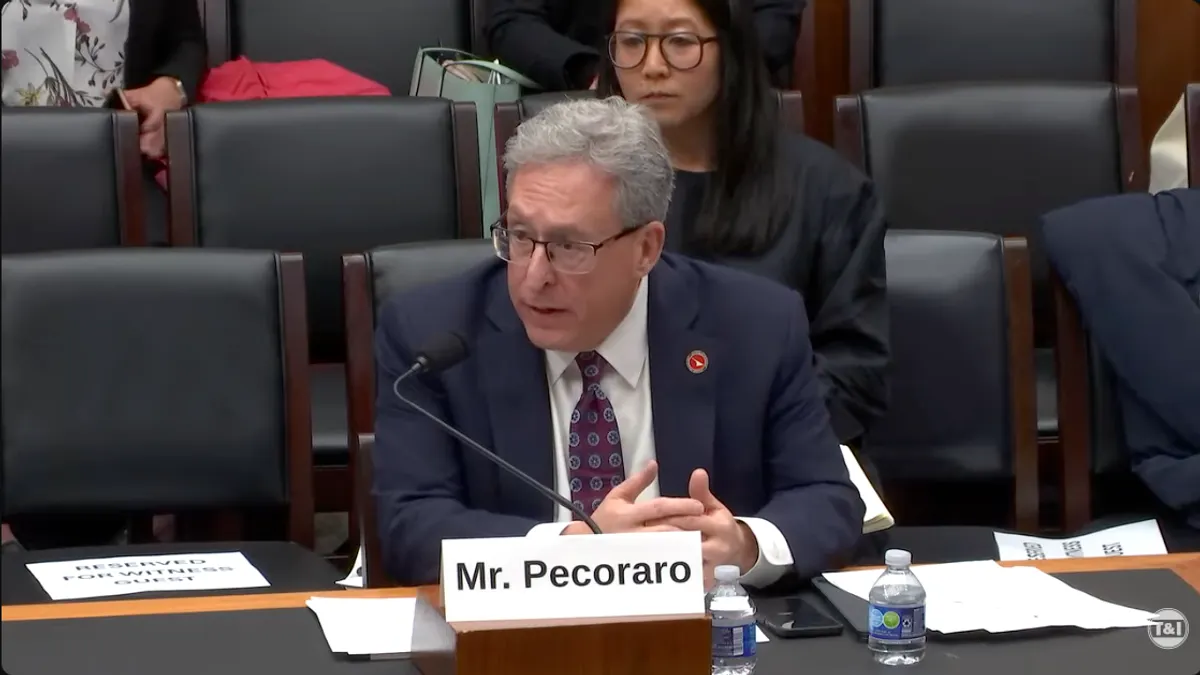New York will challenge the Trump administration’s action to kill the state’s congestion pricing plan for New York City, Gov. Kathy Hochul, a Democrat, said in a press conference Wednesday afternoon.
At 12:30 pm Wednesday, the U.S. Department of Transportation announced in a press release that it had terminated approval of the program — reportedly sharing that news with the public before it communicated that information to the state. Hochul said that the DOT emailed a letter at 1:01 p.m. from Transportation Secretary Sean Duffy with the decision. At the 4 p.m. press conference, Hochul said, “In case you don't know New Yorkers, we're in a fight. We do not back down, not now, not ever.”
The tolling plan was enacted by state law in 2019 in an effort to reduce traffic congestion in Manhattan’s central business district and to raise revenue for the New York Metropolitan Transportation Authority to buy trains and buses and make other capital investments.
However, Hochul did not allow the tolling program to go into effect as originally planned on June 30, 2024. Many believed it was a political decision to help suburban Democrats facing tight U.S. House races in November. Shortly after Election Day, Hochul announced that congestion pricing would go into effect Jan. 5, 2025.
The state’s plan required approval of the Federal Highway Administration because highways built with federal funds cannot be tolled except in certain circumstances. The approval FHWA gave to the project in 2024 was rescinded yesterday by the DOT.
Prior to the implementation of the plan, traffic congestion in Manhattan had gotten even worse than it was before the pandemic, according to a 2024 report from Streetlight. The city’s urban core saw the largest increase in vehicle miles traveled and in congestion over the five years from 2019 to 2024.
MTA Chair and CEO Janno Lieber said at the press conference that since congestion pricing went into effect on Jan. 5, traffic in the tolling zone was down 9%. With 1.2 million fewer vehicles entering the area, the result has been faster travel for buses and other vehicles. The MTA filed suit in federal court yesterday to enable the program to continue, Hochul and Lieber said.
“Congestion pricing works, and the data proves it,” the Congestion Pricing Now Coalition said in a statement. “Any attempt to kill this program, which was authorized by the federal government, is an unwarranted intrusion into state and local governance.” The coalition comprises transit riders, civic and business groups and other advocates.
That theme was echoed by Hochul in her remarks Wednesday. “This is an attack on our sovereign identity, our independence from Washington,” she said.
Hochul and President Donald Trump had talks prior to the DOT’s action. “I spoke to the president many times, in a reasonable way,” the governor said, but she wouldn’t provide details of their conversations.
Those who oppose congestion pricing applauded the DOT’s action. New Jersey Gov. Phil Murphy, a Democrat, posted a statement Wednesday thanking Trump and Duffy for their actions. “While I have consistently expressed openness to a form of congestion pricing that meaningfully protects the environment and does not unfairly burden hardworking New Jersey commuters, the current program lines the MTA’s pockets at the expense of New Jerseyans,” he said.
Republican leaders of the House Transportation and Infrastructure Committee also voiced their approval of the administration’s move. “We commend President Trump and Secretary Duffy for acting to provide relief for hardworking families, commuters, small businesses, truckers, and more throughout the New York metropolitan area,” said Rep. Sam Graves, R-Mo., and Rep. David Rouzer, R-N.C., in a joint emailed statement.
Hochul postponed a planned meeting with Trump that was to take place today and is now tentatively scheduled for next week, according to the New York Post. But in the meantime, she vowed that the “cameras [for tolls] are staying on.”





















